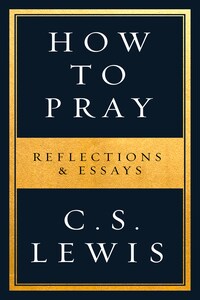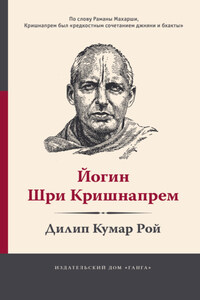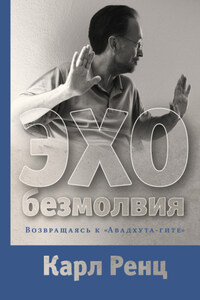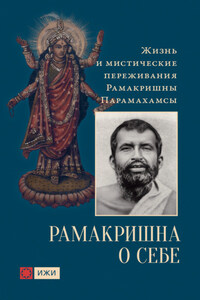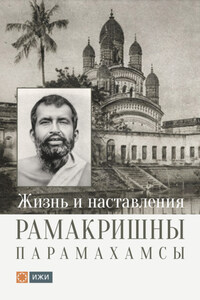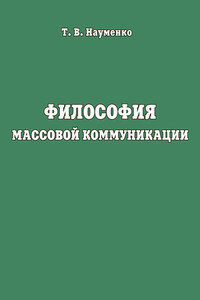William Collins
An imprint of HarperCollinsPublishers Ltd
1 London Bridge Street
London SE1 9GF
WilliamCollinsBooks.com
First published in Great Britain by William Collins in 2018
First published in the United States by HarperOne in 2018
God in the dock. Copyright © 1967 by C. S. Lewis Pte. Ltd. Published by Eerdmans.
Letters to an American lady. Copyright © 1967 by C. S. Lewis Pte. Ltd. Published by Eerdmans.
How to Pray. Copyright © 2018 by C. S. Lewis Pte. Ltd. All rights reserved.
Every effort has been made to obtain permissions for pieces quoted or adapted in this work. If any required acknowledgments have been omitted, or any rights overlooked, it is unintentional. Please notify the publishers of any omission, and it will be rectified in future editions.
Cover Designer: Jack Smyth
Designed by Yvonne Chan
All rights reserved. No part of this publication may be reproduced, stored in a retrieval system, or transmitted, in any form or by any means, electronic, mechanical, photocopying, recording or otherwise, without the prior permission of the publishers.
Source ISBN: 9780008192549
Ebook Edition © June 2018 ISBN: 9780008307103
Version: 2018-07-18
Master, they say that when I seem
To be in speech with you,
Since you make no replies, it’s all a dream
—One talker aping two.
They are half right, but not as they
Imagine; rather, I
Seek in myself the things I meant to say,
And lo! the wells are dry.
Then, seeing me empty, you forsake
The Listener’s role, and through
My dead lips breathe and into utterance wake
The thoughts I never knew.
And thus you neither need reply
Nor can; thus, while we seem
Two talking, thou art One forever, and I
No dreamer, but thy dream.
“PRAYER,” POEMS
Contents
COVER
TITLE PAGE
COPYRIGHT
EPIGRAPH
PREFACE
CAN PRAYER BE PROVEN TO WORK?
WHY MAKE REQUESTS OF GOD IF HE ALREADY KNOWS WHAT WE NEED?
DO OUR PRAYERS DEPEND ON HOW DEEPLY WE FEEL OR MEAN THEM?
ISN’T IT PRESUMPTUOUS FOR US TO BRING OUR CONCERNS BEFORE GOD?
HOW DOES PRAYER FIT WITH THE IDEA OF GOD’S PROVIDENCE? ARE WE ASKING FOR MIRACLES WHEN WE PRAY?
DOES PRAYER REQUIRE MORBID INTROSPECTION OF OUR SINS?
WHAT ARE TIPS FOR AVOIDING GOD AND PRAYER ALTOGETHER? (A DEVIL’S PERSPECTIVE)
Part 1: Make Sure Your Prayers Are Especially “Spiritual”
Part 2: Believe You Are Not a Very Good Christian
Part 3: Treat Prayers as Tests of God
Part 4: Focus on Your Own State of Mind
HOW DOES PRAYER BECOME A REGULAR PRACTICE FOR US?
HOW CAN WE GET OUT OF OUR OWN WAY AND PRAY?
HOW DO WE MAKE SURE IT IS THE REAL “I” WHO STANDS BEFORE THE REAL “THOU” IN PRAYER?
HOW CAN WE BE LIKE DAVID AND PRAY WITH DELIGHT?
HOW DO WE MAKE SENSE OF WHAT THE NEW TESTAMENT TEACHES ABOUT PRAYER?
HOW DO WE PRAY WHILE GRIEVING?
CAN WE PRAY TO AVOID SUFFERING IF IT IS GOOD FOR OUR SOUL?
HOW DO WE STAY HOPEFUL WHEN GOD REPEATEDLY SAYS NO TO OUR REQUESTS FOR RELIEF?
SOURCE WORKS
ABOUT THIS BOOK
ABOUT THE AUTHOR
ALSO IN THE SERIES
ALSO AVAILABLE FROM HARPERCOLLINS
ABOUT THE PUBLISHER
C. S. LEWIS is widely recognized as one of the twentieth century’s leading defenders and explainers of the Christian faith, especially through his classic works Mere Christianity, The Screwtape Letters, Miracles, The Problem of Pain, and more. What is ironic is that in private Lewis often expressed how his weakest moments were just after he had successfully defended a Christian idea or doctrine. What sustained him, though, was his commitment to living out what he saw as his ordinary Christian practices: attending church, practicing charity and hospitality, examining his motives and actions to lessen his weaknesses, confessing his sins, and strengthening what needed strengthening. And he prayed.
It is not surprising that a teacher of Christian faith would pray regularly, and it is easy to overlook the regular mentions of prayer in Lewis’s many letters over the years. “I will keep you in my prayers” sounds like a cliché, even though phrases like this appear often and regularly in his correspondence. Taken as a whole, these many references reveal something important: that Lewis took his practice of prayer seriously. If we are paying attention, it soon becomes apparent that Lewis routinely committed to praying for people, that he kept lists of such requests, tracking and updating them over time, that he had his own list of requests, that he often prayed traditional prayers from the prayer book as well as practicing many other forms of prayers besides making petitions, and he regularly dispensed advice on issues surrounding prayer. In his published work, the subject of prayer pops up regularly. In other words, Lewis spent a lot of time practicing, thinking about, and writing about prayer.
It is also clear that Lewis saw all this as wholly unremarkable. In a brief letter of August 1949, Lewis said to a friend, “I don’t feel I could write a book on Prayer: I think it would be rather ‘cheek’ of my part.” He obviously changed his mind in that he began writing such a book, though it was only published posthumously as
